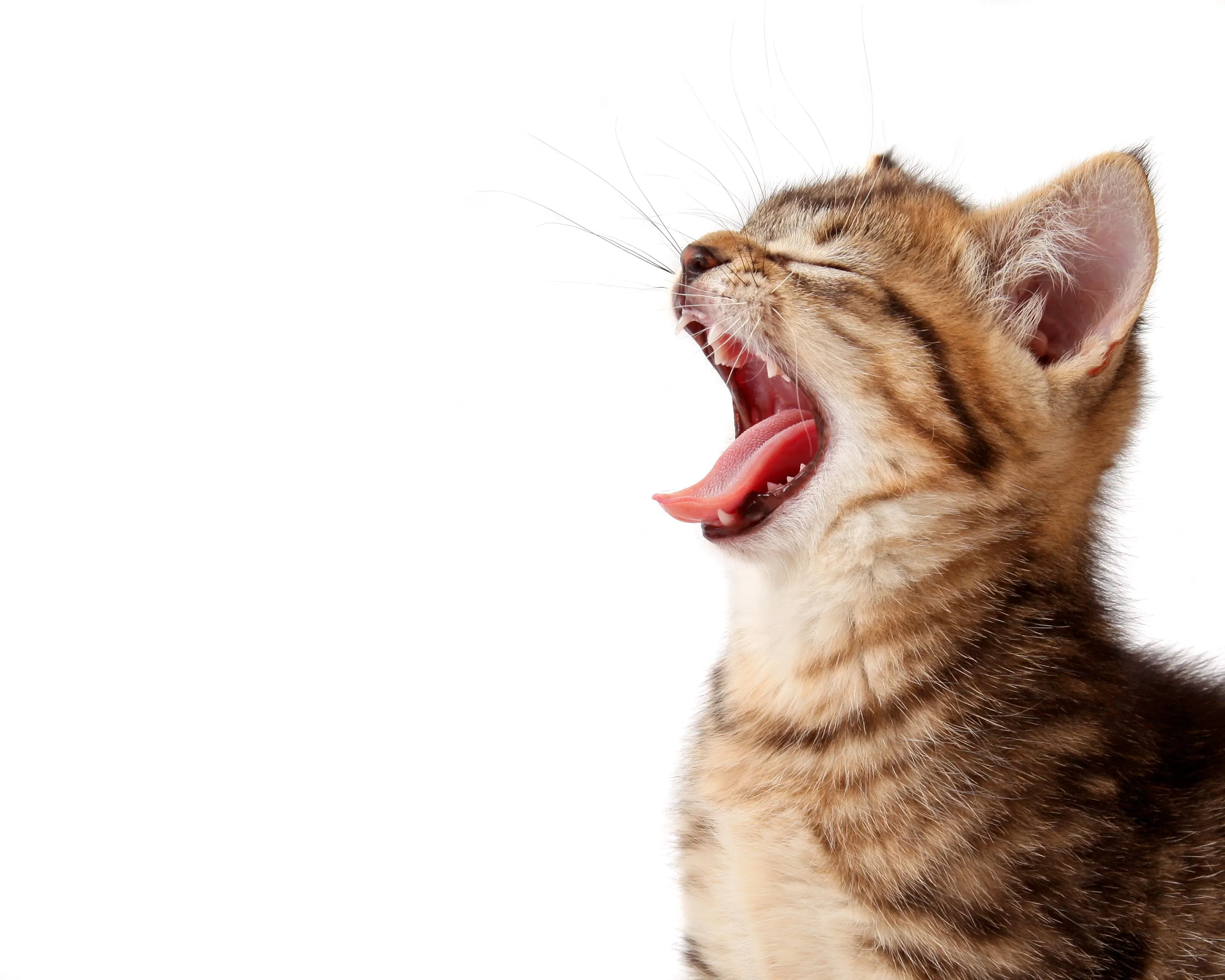Yawning: It's Not Just About Being Tired or Bored!
By Devendra Narayan, PhD.

Stock image from DepositPhotos
We've all been there – sitting in a meeting, watching a movie, or even just chilling on the couch, and BAM! The urge to yawn hits. You might think it's just because you're tired, but oh no, my friends, yawning is way more complex than that. It's a physiological powerhouse with some seriously interesting tricks up its sleeve.
The Yawn Breakdown: What Actually Happens?
A yawn is more than just an open mouth and a breath. It's a stereotyped behavior involving a whole bunch of muscles working together. Here's the play-by-play:
- First, your mouth goes wide open, and you take a long, deep breath.
- Then, you hit a brief pause, a moment of apnea if you will.
- Finally, it's all wrapped up with a shorter exhale.
- And let's not forget, all those muscles in your jaw, throat, and chest are flexing and stretching like they're getting ready for a workout.
But wait, there's more! As your body goes into full yawn-mode, some pretty cool physiological changes are happening, including:
- Your heart rate kicks up a notch.
- The tension in your eye muscles increases.
- Your lungs take in more air than usual.
- And for a brief period after the yawn, the respiratory rate decreases.
- You may also experience increased skin conductance, indicating an active sympathetic nervous system.
All this action is way more specific to yawning than regular deep breaths, which makes yawning a unique physiological event.
The Big Question: Why Do We Yawn?
Okay, so we know how we yawn, but why? Turns out, scientists have a few theories that go beyond simple tiredness:
Oxygen Myth Debunked: Contrary to popular belief, yawning is not about increasing the oxygen level in your blood. Turns out, studies have shown that manipulating oxygen levels has no impact on how much we yawn.
Brain Cooling: One of the leading theories suggests that yawning is our body's way of cooling down our brain. Think of it as a little brain radiator kicking in to lower the temperature. This idea is backed up by research showing that methods that would cool the brain, like nasal breathing and forehead cooling, actually reduce contagious yawning.
Arousal Boost: Yawning could also be a way of increasing alertness, like a mini-shot of espresso for your brain. It often happens during the transition between wakefulness and sleep and even before stressful events. It's like your body saying, "Okay, let's get ready to roll!"
Airway Management: Here's a novel idea: yawning might help maintain your airway by widening your pharynx, ensuring you're getting all the oxygen you need. It's like a little tune-up for your breathing system.
The Social Side of Yawning: It's Contagious!
Here's where things get really interesting. Yawning is highly contagious! You see someone yawn, you hear someone yawn, you even think about yawning, and suddenly you're doing it too! What's up with that? Scientists think that contagious yawning is linked to empathy and social bonding. It's like a way of saying, "Hey, we're all in this together!" The social implications of yawning are likely a bonus, a derived feature as a result of its evolutionary function.

Stock image from DepositPhotos
Yawning Gone Wrong: When to Pay Attention
While usually harmless, yawning can sometimes signal an underlying health issue:
- Pathological yawning, or excessive yawning, can be a symptom of various neurological conditions, like stroke, Parkinson's disease, and epilepsy.
- It's not a bad idea to consult a doctor about excessive yawning, especially if it comes on suddenly.
The Evolutionary Lowdown: A Very Old Behavior
Here's a fun fact: yawning is an evolutionarily ancient behavior! It's been seen in most vertebrates, from fish all the way to humans! That means it's been around for a long, long time and that its consistent presence across species signals a significant, conserved biological role.
The Wrap Up
So there you have it, the wonderfully complex world of yawning! It's not just about being tired; it's a multi-functional physiological process that helps cool our brains, boost our alertness, and keep our airways open. And let's not forget about its contagious nature, showing us how deeply connected we are. So, the next time you feel a yawn coming on, embrace it – you're participating in one of nature's most interesting and mysterious behaviors!
References
[1] Corey TP, Shoup-Knox ML, Gordis EB, Gallup GG Jr. Changes in Physiology before, during, and after Yawning. Front Evol Neurosci. 2012 Jan 3;3:7.
[2] Yoon JMD, & Tennie C. Contagious yawning: A reflection of empathy, mimicry, or contagion? Animal Behaviour, 2010; 79(5), e1–e3.
[3] Doelman CJ, Rijken JA. Yawning and airway physiology: a scoping review and novel hypothesis. Sleep Breath. 2022 Dec;26(4):1561-1572.
[4] Gupta S, Mittal S. Yawning and its physiological significance. Int J Appl Basic Med Res. 2013 Jan;3(1):11-5.
[5] Gallup AC, & Gallup GG Jr. Yawning as a brain cooling mechanism: Nasal breathing and forehead cooling diminish the incidence of contagious yawning. Evolutionary Psychology, 2007; 5(1), 92–101.
[6] Teive HAG, Munhoz RP, Camargo CHF, Walusinski O. Yawning in neurology: a review. Arq Neuropsiquiatr. 2018 Jul;76(7):473-480.
[7] Lin S. Yawning: Changes In Physiology. J Neurosci Neuropharmacol. 2022, 8(1), 001-002.
About the Author
Devendra Narayan is a scientist, yoga teacher, breathworker, scholar and founder of Cultivate Prana Academy. Cultivate Prana's mission is to empower modern day healers through education that integrates ancient wisdom and modern science.
Copyright 2024 Cultivate Prana LLC. All rights reserved.

.png)